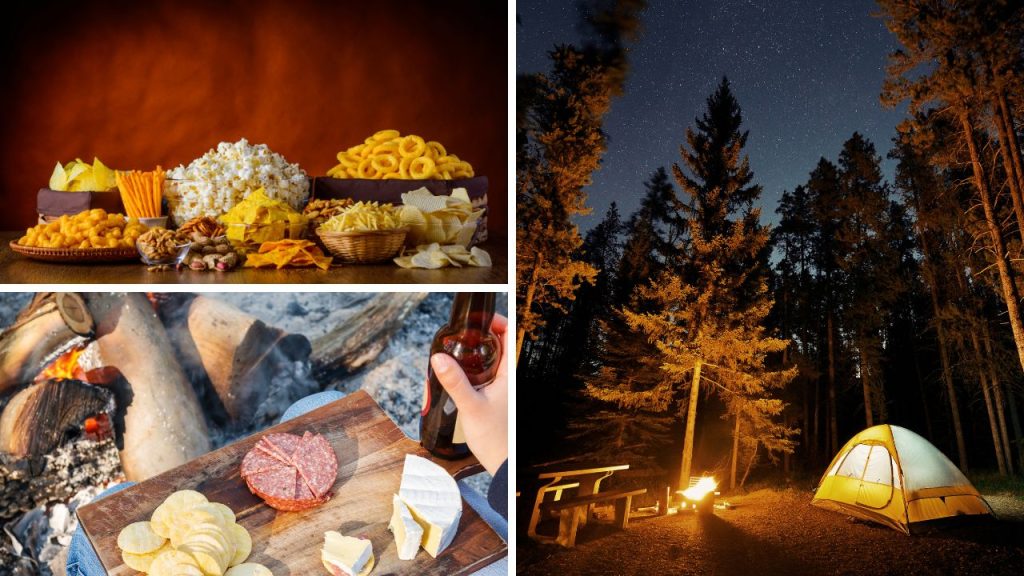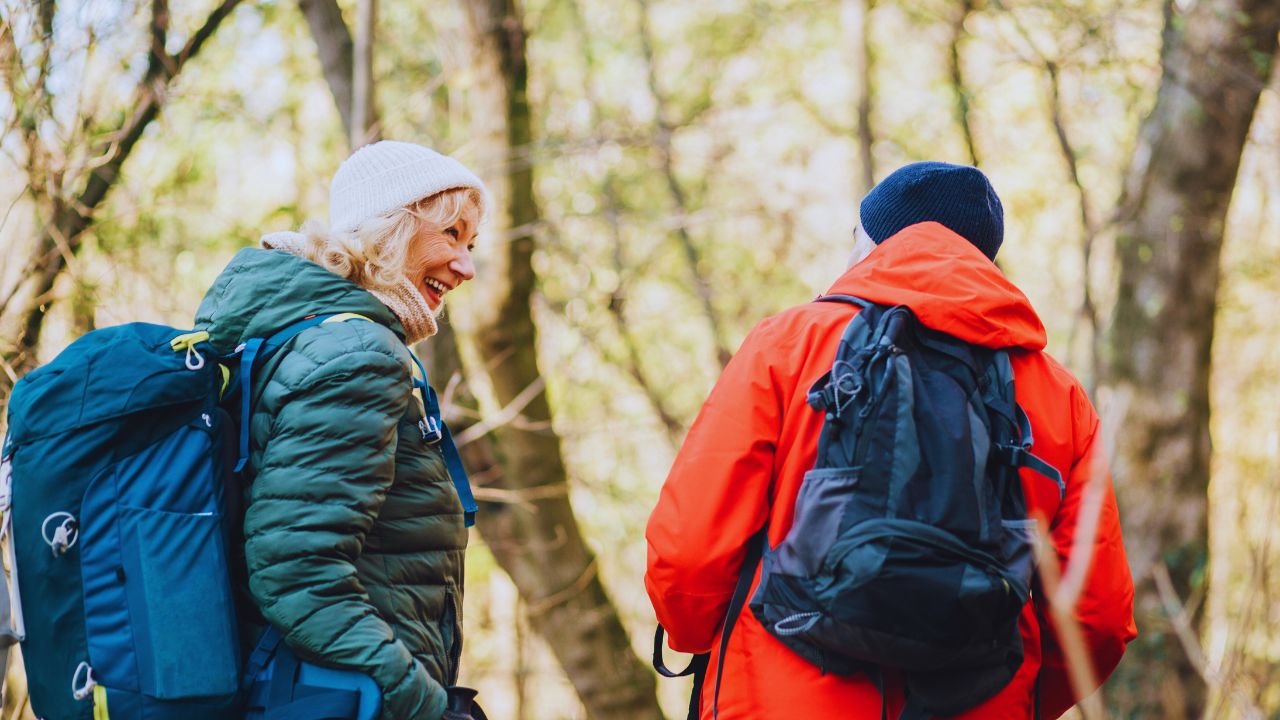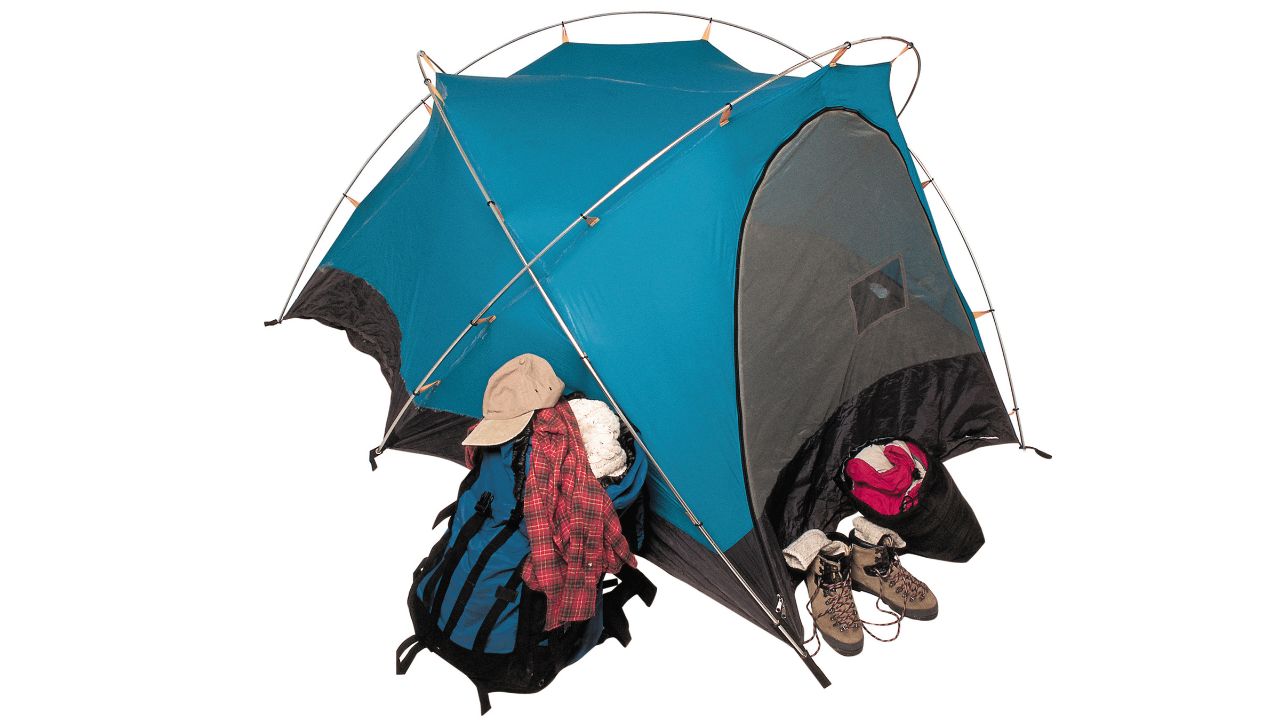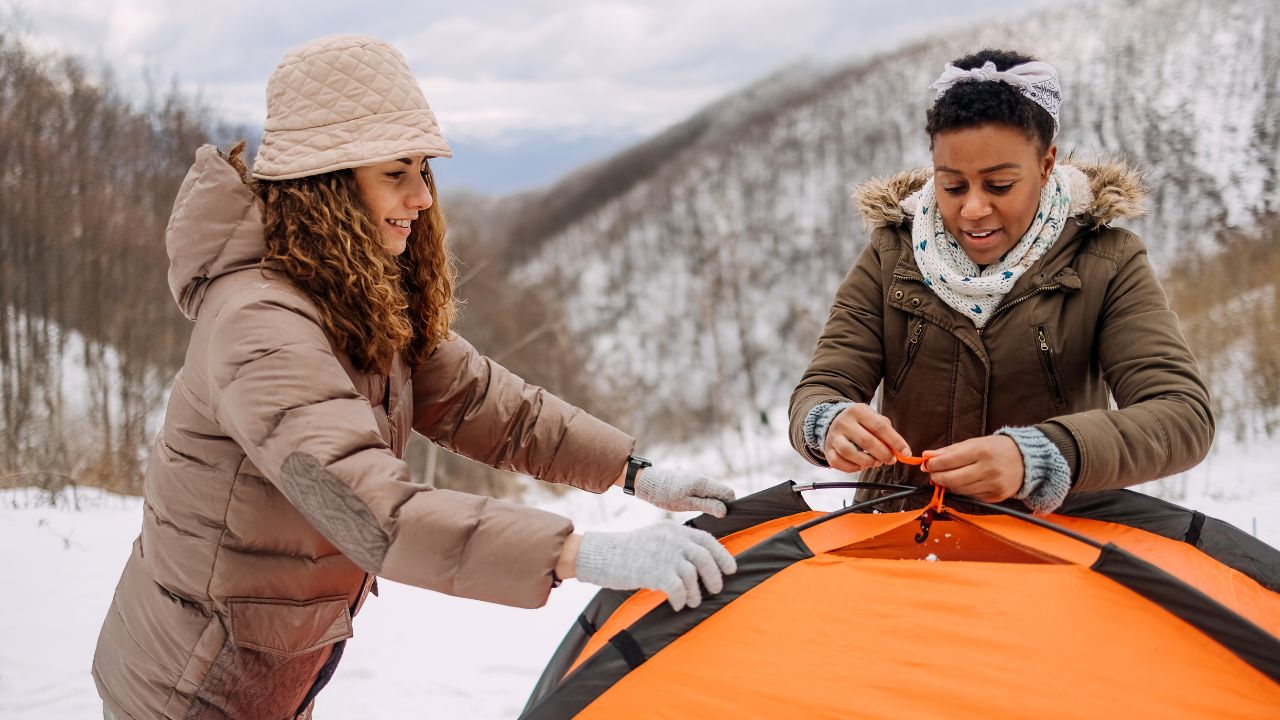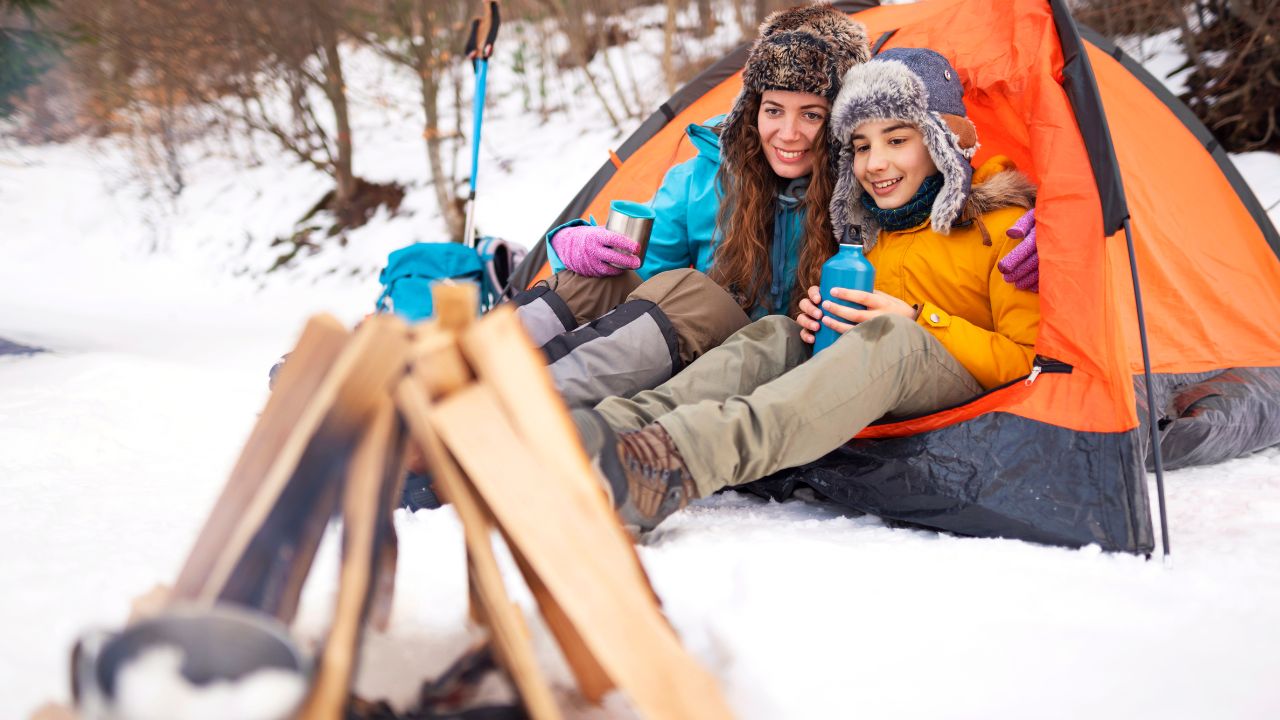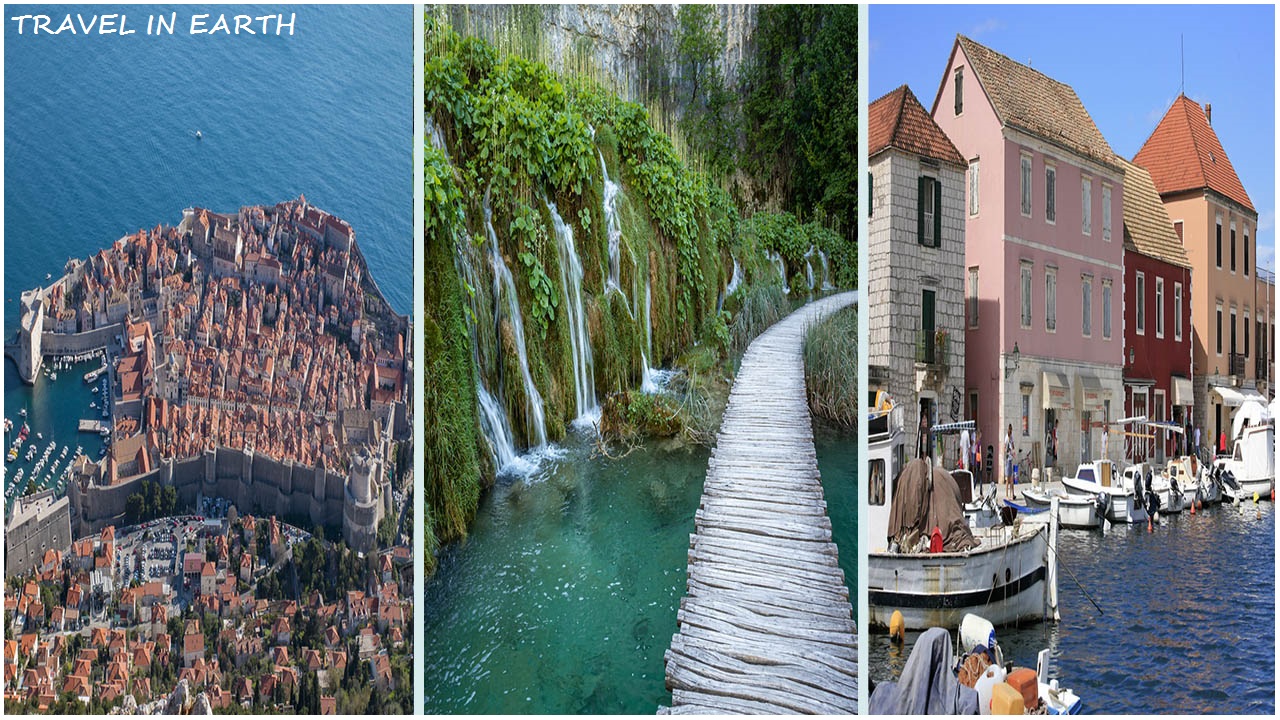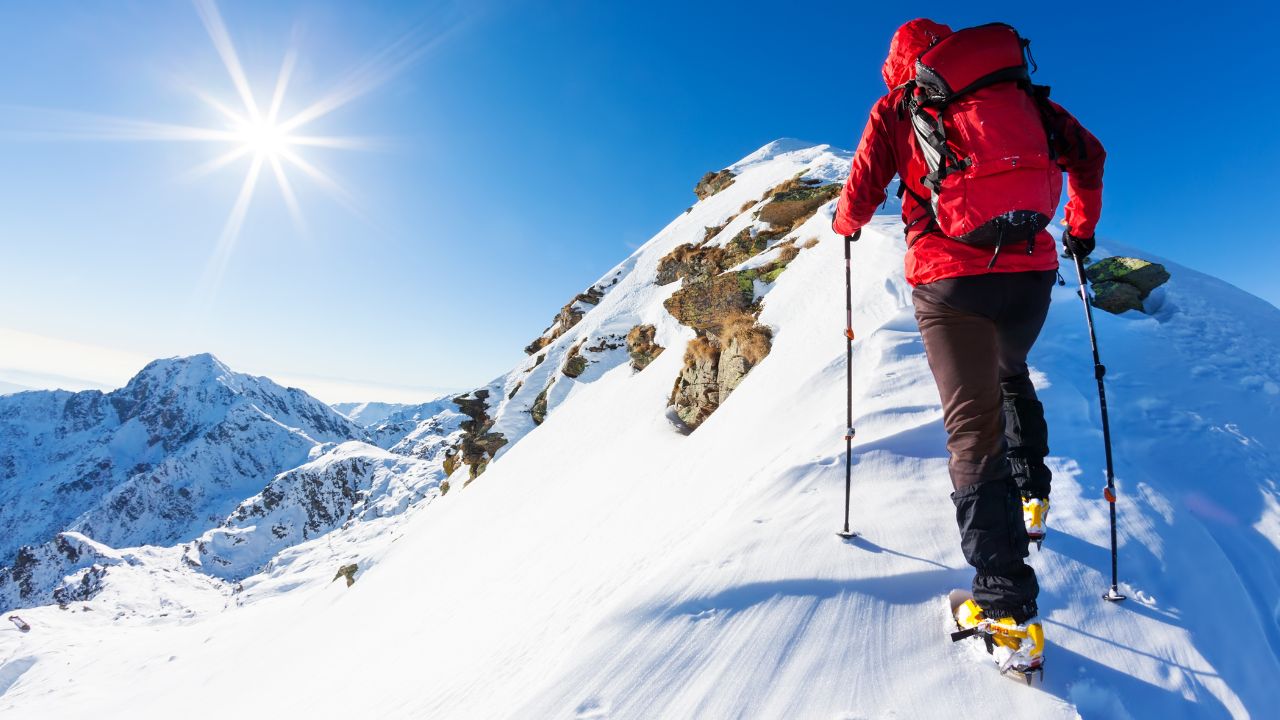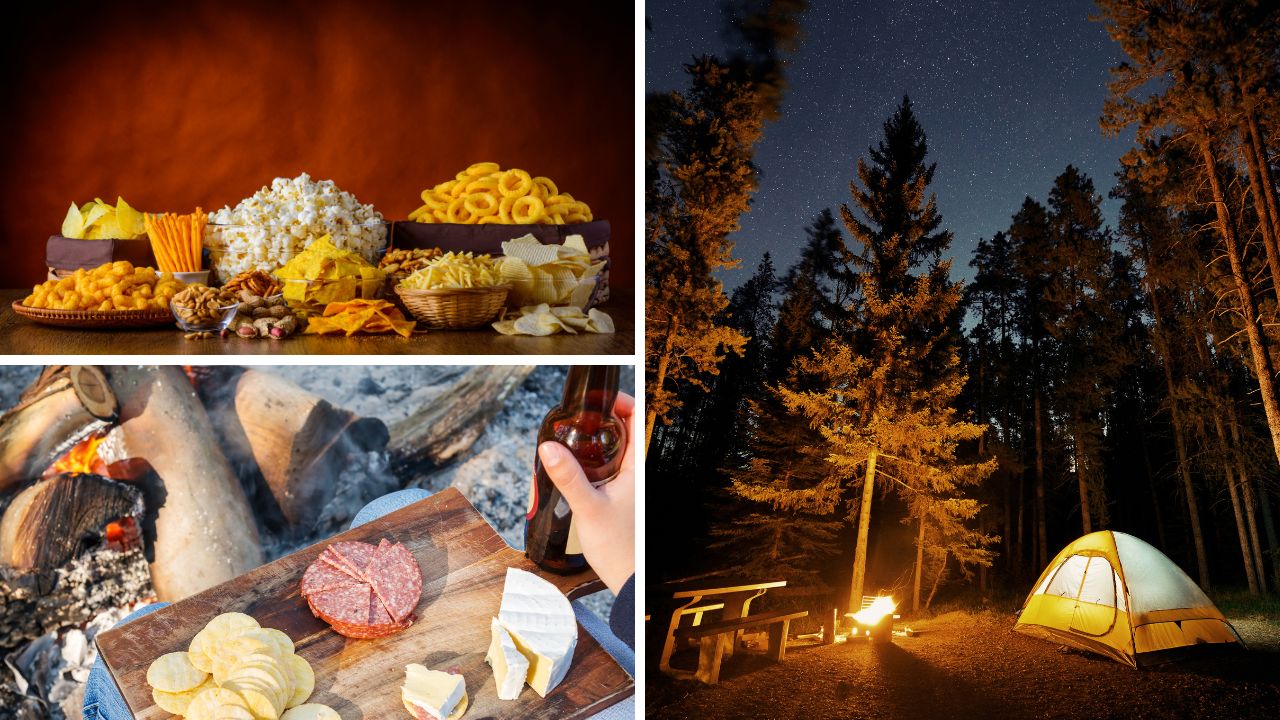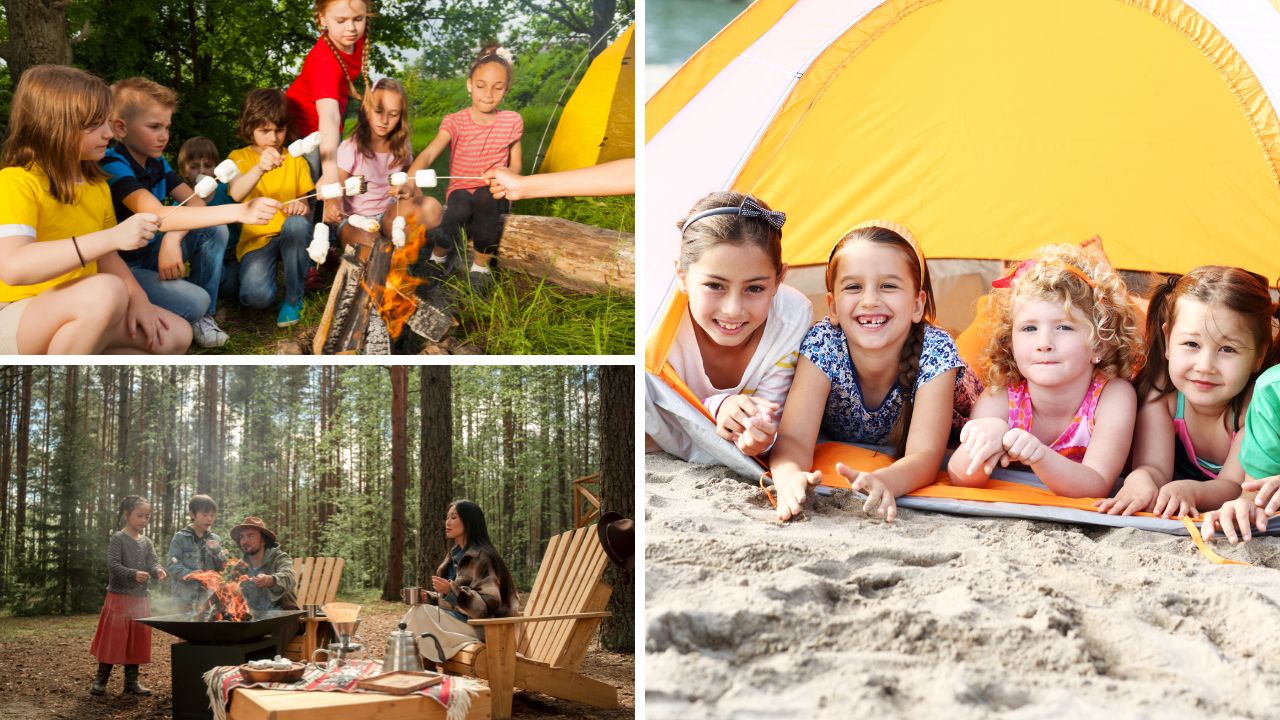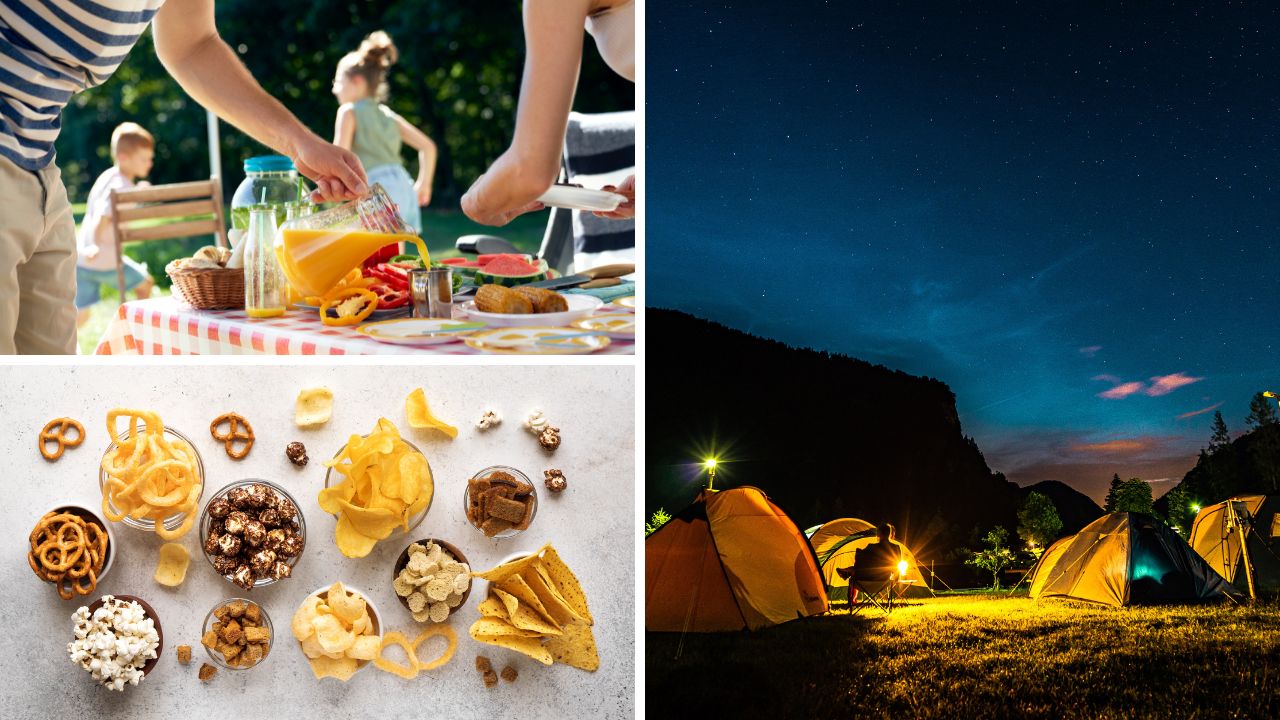Camping is a wonderful way to connect with nature and enjoy the outdoors. But after a long day of hiking, swimming, or exploring, you need the right snacks to refuel and keep your energy up.
In this article, we’ll explore the 40 best camping snacks that are not only delicious but also practical for your outdoor adventures. From nutrient-packed options to easy-to-pack treats, we’ve got you covered for your next camping trip.
Now, let’s dive into each section:
Why Snacks are Important for Camping?
Snacks play a crucial role in any camping trip. They provide:
- Quick energy boosts between meals
- Convenient nutrition when cooking isn’t possible
- Comfort food for long days outdoors.
- Variety in your camping diet
- Fuel for outdoor activities
Proper snacking can help maintain energy levels, prevent fatigue, and enhance your overall camping experience.
Criteria for Selecting the Best Camping Snacks
When choosing camping snacks, consider:
- Portability: Easy to pack and carry
- Durability: It is capable of withstanding a range of temperatures and conditions
- Nutritional value: It provides necessary nutrients for outdoor activities.
- Shelf-stability: Doesn’t require refrigeration
- Taste: enjoyable to eat.
- Ease of consumption: Doesn’t require extensive preparation
- Minimal waste: Eco-friendly packaging or easily disposable
With these criteria in mind, let’s explore our top 40 camping snacks:
Nutrient-Dense Snacks

- Trail Mix: A classic camping snack, trail mix combines nuts, dried fruits, and sometimes chocolate for a perfect balance of protein, healthy fats, and quick energy. Make your own mix or choose from countless pre-made options.
- Jerky: High in protein and low in moisture, jerky is an excellent camping snack. Options include beef, turkey, salmon, and even plant-based jerky for vegetarians.
- Dried Fruits: Packed with natural sugars and fiber, dried fruits like apricots, mangoes, and cranberries provide quick energy and essential vitamins.
- Nuts and Seeds: Almonds, walnuts, pumpkin seeds, and sunflower seeds offer healthy fats, protein, and minerals. They’re calorie dense, making them perfect for long hikes.
- Protein Bars: Look for bars with a good balance of protein, carbs, and healthy fats. Many brands offer options tailored for outdoor activities.
- Tuna or Salmon Pouches: These provide lean protein and omega-3 fatty acids. Pre-cooked, they come in convenient, lightweight pouches.
- Hard-Boiled Eggs: If you’re camping for a short time, hard-boiled eggs are a nutritious source of protein and nutrients. Please eat them within the first two days of your trip.
- Roasted Chickpeas: A crunchy, high-fiber snack that’s rich in protein and carbohydrates. You can make them at home before your trip, or they come in various flavors.
Easy-to-Pack Snacks

- Granola Bars: These compact snacks are easy to pack and provide a nutritious mix of carbs, fiber, and sometimes protein.
- Rice Cakes: They are light and crispy, and you can eat them plain or top them with nut butter for extra nutrients.
- Pretzels: A low-fat snack that satisfies salt cravings. Choose whole grain varieties for added fiber.
- Popcorn: Pre-popped popcorn is a light, high-volume snack that’s perfect for munching around the campfire.
- Crackers: Whole grain crackers provide carbs and fiber. Pair them with cheese or nut butter for a more substantial snack.
- Beef Sticks: Similar to jerky, beef sticks are protein-rich and easy to pack. Look for varieties with minimal additives.
- Seaweed Snacks: Light, crispy, and full of minerals, seaweed snacks are a unique option that packs flat in your bag.
- Veggie Chips: Made from dehydrated vegetables, these chips offer a lighter alternative to potato chips while still satisfying that crunch craving.
No-Cook Snacks

- Fresh Fruits: Apples, oranges, and bananas are nature’s perfect snacks. They provide natural sugars, fiber, and hydration.
- Baby Carrots: Baby carrots are a crunchy and hydrating vegetable option that requires no preparation.
- Cherry Tomatoes: Packed with vitamins, these tiny fruits (yes, tomatoes are fruits!) can add freshness to your camping meals.
- Cucumber Slices: Another hydrating vegetable that’s easy to pack and eat on the go.
- Celery Sticks: Crunchy and low in calories, celery pairs well with nut butter for a more substantial snack.
- Pre-cut Bell Peppers: Colorful and crunchy, bell peppers are rich in vitamin C and add variety to your snack options.
- Cheese Sticks: Individual cheese sticks provide protein and calcium. Unless you have proper refrigeration, it’s best to consume them early in your camping trip.
- Hummus Cups: Single-serve hummus cups paired with veggie sticks or crackers make for a nutritious, no-cook snack.
Energy-Boosting Snacks

- Energy Gels: Popular among hikers and endurance athletes, these provide quick carbohydrates for an instant energy boost.
- Honey Packets: Natural sugar for quick energy. You can add them to tea or spread them on crackers.
- Peanut Butter Packets: High in protein and healthy fats, individual peanut butter packets are perfect for spreading on crackers or fruit.
- Chocolate-Covered Espresso Beans: For a caffeine kick and a sweet treat, these beans provide both quick and sustained energy.
- Coconut Chips: High in healthy fats and natural sugars, coconut chips offer a tropical twist to your snack selection.
- Dried Edamame: These soybeans are high in protein and fiber, providing sustained energy for your outdoor activities.
- Banana Chips: A crunchy version of the popular fruit, banana chips offer potassium and quick carbohydrates.
- Goji Berries: Packed with antioxidants, these small, red berries offer a sweet-tart flavor boost.
Hydrating Snacks

- Watermelon: While not the most practical for long trips, fresh watermelon can be a hydrating treat for shorter camping excursions.
- Grapes: Another hydrating fruit option that’s easy to snack on while hiking or relaxing at the campsite.
- Electrolyte Powder Packets: While not strictly a snack, you can add these to water to boost hydration, which is crucial for active outdoor adventures.
- Coconut Water: Packed with electrolytes, coconut water is a natural way to stay hydrated. Look for single-serve boxes for easy packing.
Campfire-Friendly Snacks

- S’mores Ingredients: Graham crackers, marshmallows, and chocolate bars are camping classics. They’re not the healthiest option, but they’re a fun treat for around the campfire.
- Popcorn Kernels: Bring kernels and oil to pop fresh popcorn over the campfire. It’s a fun activity and a tasty snack.
- Roasting Nuts: Bring raw nuts to roast over the fire for a warm, savory snack.
- Campfire Cones: Fill ice cream cones with a mix of fruits, marshmallows, and chocolate chips, wrap in foil, and heat over the campfire for a delicious dessert.
Kid-Friendly Camping Snacks

It’s important to bring nutritious, kid-friendly snacks when camping. Here are some kid-friendly options from our list:
- Trail mix: Let kids create their own mix with their favorite nuts, dried fruits, and a sprinkle of chocolate chips.
- Fruit leather: A chewy, sweet treat made from real fruit.
- Apple slices with individual peanut butter packets: A classic combination that provides protein and fiber.
- Cheese sticks: Easy to eat and a good source of calcium.
- Granola bars: Look for varieties with less added sugar.
- Popcorn: A fun, light snack that kids love.
- Veggie chips: A crunchier alternative to fresh vegetables that might appeal more to some children.
Remember to involve children in the snack selection process before the trip. This can make them more excited about healthy eating during the camping adventure.
Allergy-Friendly Options
Camping with food allergies requires extra care in snack selection. Here are some allergy-friendly options:
- For nut allergies: Sunflower seed butter, pumpkin seeds, roasted chickpeas
- For dairy allergies: Coconut-based yogurt, dairy-free protein bars
- For gluten allergies: Rice cakes, gluten-free crackers, fruits and vegetables
- For soy allergies: Coconut aminos (as a soy sauce alternative), bean-based chips
Always check labels carefully and consider packing allergy medications as a precaution.
Eco-Friendly Snack Packaging
As outdoor enthusiasts, it’s crucial to minimize our impact on the environment. Here are some tips for eco-friendly snack packaging:
- Use reusable containers: Invest in durable, lightweight containers for snacks instead of single-use plastic bags.
- Opt for minimal packaging: Choose snacks with less packaging or remove excess packaging before your trip.
- Bring a trash bag: Always pack out what you pack in, leaving no trace at your campsite.
- Consider biodegradable options: Some brands now offer compostable packaging for trail snacks.
Remember, the goal is to enjoy nature while preserving it for future generations.
Tips for Storing and Packing Snacks
Proper storage and packing of your camping snacks can make a big difference in your outdoor experience. Here are some tips:
- Use airtight containers: This keeps snacks fresh and protects them from moisture and insects.
- Separate day packs: Pack daily portions in separate bags to avoid constantly opening your main food storage.
- Keep it cool: Use a cooler for perishable items, and consume these early in your trip.
- Hang your food: In bear country, always use bear canisters or hang your food away from your campsite.
- Label and organize: Mark containers with contents and any allergy information.
- Pack strategically: Place heavier items at the bottom of your pack and frequently used snacks in easily accessible pockets.
- Consider vacuum sealing: For longer trips, vacuum-sealed snacks can stay fresh longer and take up less space.
Conclusion
Choosing the right snacks can greatly enhance your camping experience. The 40 options we’ve explored offer a mix of nutrition, convenience, and taste to suit various preferences and dietary needs. Remember to consider factors like portability, nutritional value, and environmental impact when selecting your camping snacks.
Whether you’re embarking on a challenging hike or simply enjoying the serenity of nature, these snacks will keep you fueled and satisfied. Don’t forget to stay hydrated and practice Leave No Trace principles by properly disposing of any waste.

